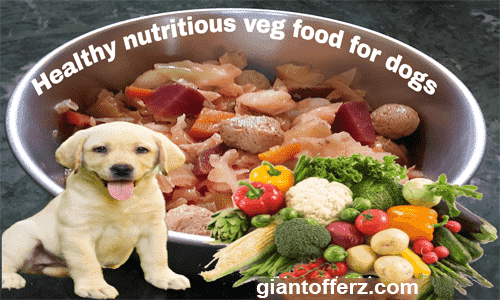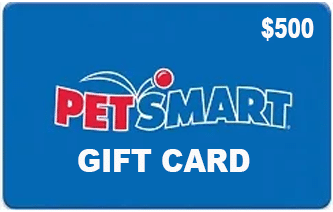
Vegan Dog Food Diet Plan
Vegan Dog Food Diet Plan: A Comprehensive Guide.
As pet owners, we always want the best for our furry companions. If you’re considering a vegan diet for your dog, you’re not alone. The vegan dog food diet plan has gained popularity in recent years for its potential health and environmental benefits. In this comprehensive guide, we’ll explore the ins and outs of a vegan dog food diet plan, from understanding its nutritional requirements to debunking common myths. By the end of this article, you’ll be equipped with the knowledge to make an informed decision about whether a vegan diet is right for your canine companion.
Vegan Dog Food Diet Plan
When it comes to a vegan dog food diet plan, it’s essential to ensure that your pet’s nutritional needs are met. Here are some key considerations:
Meeting Nutritional Requirements
Providing your dog with a balanced diet is crucial. Just like humans, dogs need various nutrients to thrive. When opting for a vegan diet, you must carefully plan your meals to include:
A vegan diet for dogs is a contentious topic within the veterinary and pet nutrition community, as dogs are naturally omnivores, and their nutritional requirements differ significantly from those of humans.
It’s essential to consult with a veterinarian or veterinary nutritionist before transitioning your dog to a vegan diet, as it can be challenging to provide all the necessary nutrients in the right balance. That said, if you and your veterinarian decide to proceed with a vegan diet for your dog, here’s a general diet plan to consider:
Important Note: Ensure that any commercial vegan dog food you use is formulated to meet the nutritional needs of dogs and has been approved by relevant regulatory bodies like AAFCO (Association of American Feed Control Officials).
Vegan Dog Food Diet Plan

Daily Vegan Dog Food Diet Plan:
1. Protein Source:
• Choose a high-quality, plant-based protein source such as soy, peas, lentils, or beans.
• Ensure that the protein content is appropriate for your dog’s age, size, and activity level.
- Fats:
• Include a source of healthy fats like flaxseed oil, canola oil, or sunflower oil.
• Fats are essential for energy and the absorption of fat-soluble vitamins. - Carbohydrates:
• Provide complex carbohydrates like brown rice, quinoa, sweet potatoes, or oats.
• Carbs supply energy and fiber. - Vegetables:
• Include a variety of vegetables such as carrots, broccoli, spinach, and peas.
• Vegetables add vitamins, minerals, and fiber to the diet. - Fruits:
• Offer small amounts of fruits like apples, blueberries, or bananas as treats.
• Fruits provide additional vitamins and antioxidants. - Calcium and Phosphorus:
• Ensure the diet contains an appropriate balance of calcium and phosphorus, as imbalances can lead to skeletal problems.
• You may need to add a calcium supplement if your dog’s food doesn’t provide enough. - Vitamins and Minerals:
• Consider a vegan dog-specific multivitamin or mineral supplement to ensure your dog receives all necessary nutrients.
• B12 supplementation is often necessary, as it’s challenging to obtain from plant-based sources. - Consult with a Veterinarian:
• Regularly consult with a veterinarian to monitor your dog’s health and adjust the diet as needed.
• Blood tests can help ensure your dog is getting the right nutrients.
9. Hydration:
• Always provide clean, fresh water for your dog to drink.
10. Transition Gradually:
• Gradually transition your dog to the vegan diet over several days to avoid digestive upset.
Remember that each dog is unique, and their dietary needs can vary based on factors like age, breed, activity level, and any underlying health conditions. Therefore, it’s crucial to tailor the diet to your specific dog’s needs with the guidance of a veterinarian or veterinary nutritionist. Regular check-ups and monitoring are essential to ensure your dog remains healthy on a vegan diet.

Vegan Dog Food Diet Plan
Transitioning to a Vegan Diet
Switching your dog to a vegan diet should be a gradual process. Start by mixing small amounts of vegan food with their regular diet and gradually increase the proportion of vegan food over a few weeks. This helps prevent digestive issues and ensures a smoother transition.
Consulting a Veterinarian
Before embarking on a vegan dog food diet plan, consult your veterinarian. They can assess your dog’s specific needs and recommend supplements or adjustments to ensure they receive adequate nutrition.
You can redeem a $500 PetSmart gift card for your favorite dog here, absolutely free. You can use the gift card to purchase anything for your pet, including food, clothing, or medicine. So don’t delay and apply now while the offer is still in stock click on the “Apply Here” button below and apply for the card.
You can use the currently popular “UltraK9 Pro” to maintain good health and boost the immunity of your beloved dog. Click the “UltraK9 Pro” button below for product details and reviews.
Conclusion
A vegan dog food diet plan can be a viable choice for pet owners who are committed to providing their dogs with a well-balanced and nutritionally sound diet. By focusing on meeting your dog’s specific nutritional needs, consulting a veterinarian, and ensuring a gradual transition, you can embark on this journey with confidence. Remember that every dog is unique, so always pay attention to their individual health and needs.
Post Tag: diy vegan dog food recipes, homemade vegan dog treats, vegetarian dog treats recipe, homemade vegan dog food recipes, plant based dog treats recipe, diy vegan dog treats, vegan dog treats diy, homemade vegetarian dog treats, homemade dog treats vegan, diy vegan dog food, diy vegetarian dog food, homemade vegan dog food, homemade veg food for dogs, homemade vegetarian food for dogs, vegan dog food diy,

